ALKHOBAR: In a quiet corner of Alkhobar, Moma’s Garden has become more than just a restaurant — it is a family-run establishment at which hospitality is as important as the food itself. With another branch in Dammam, the restaurant is entirely operated by the Al-Mumen family, whose members take on various roles to run its daily operations.
The atmosphere of Moma’s Garden is intentionally just like home. Sunlight filters through white curtains, casting a warm glow over wooden tables and lush greenery. The walls are adorned with framed family photographs, reflecting a history deeply intertwined with the restaurant’s identity.

The restaurant’s wishing tree, where visitors leave handwritten notes, is a symbol of community and connection. (AN photo by Waad Hussain)
Moma’s Garden started as a small venture in a Dammam hotel, a modest space that helped to lay the foundation for what would later become a larger family project.
Abdulfattah Al-Mumen, the father, said: “At first we opened Moma’s Garden in a hotel in Dammam. It was a small place, but it was big in our hearts, and that’s where our story began. Now, with our second branch in Alkhobar, our journey continues.
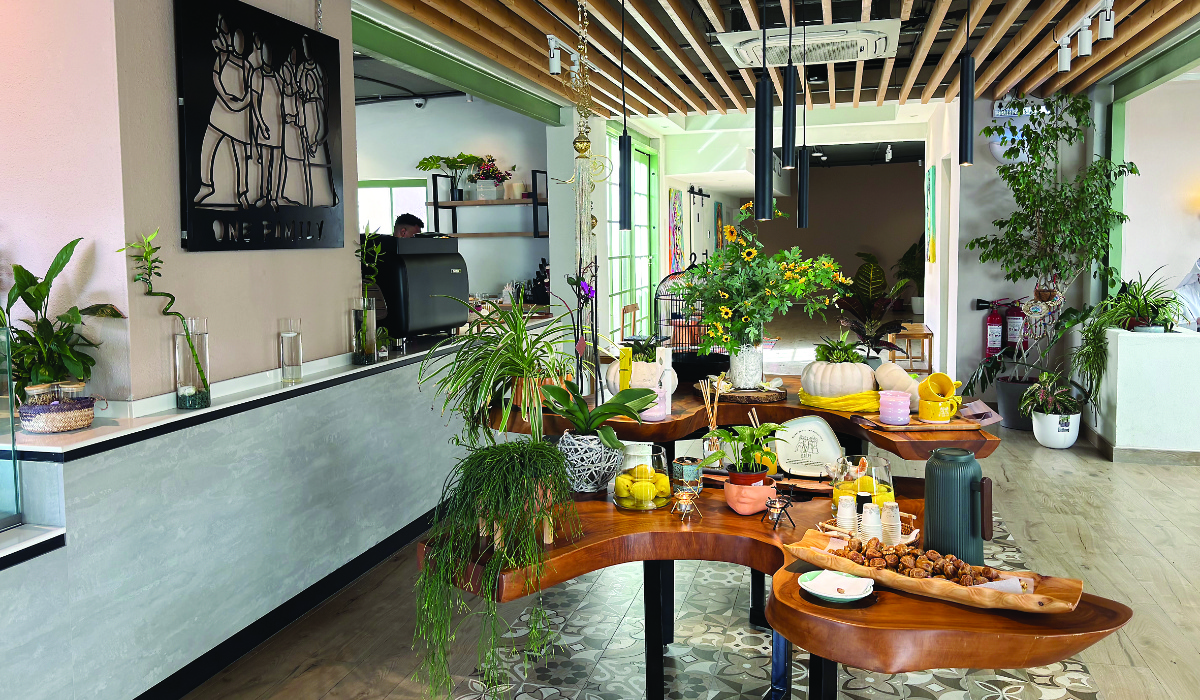
For many visitors Moma’s Garden is not just a restaurant but a place shaped by personal stories, dedication, and a deep appreciation for hospitality. (AN photo by Waad Hussain)
“It is built on the passion of our family, my wife’s creativity, and our children’s experiences from traveling and living abroad. They learned to cook for their friends, and today they are capable of managing businesses, finances, architecture, and law.”
And while each member of the family brings something to the table, Al-Mumen said: “The mastermind behind all the creativity is my wife. In the end we are simply a family that enjoys cooking and being together.”
We are not just running a business. We are sharing our passion, our creativity, and our love for food. At the end of the day what matters most is that we continue to do what we love together.
Abdulfattah Al-Mumen
Abdulhadi, their young son, told Arab News: “I handle the front desk, my mother oversees the menu and its development, Hassan manages finances, and Bayan handles legal matters.”
However, the roles are not set in stone and each family member steps up as needed. Abdulhadi added: “My father and I collaborate on architectural and design aspects … Sometimes my father is a waiter and sometimes I cook in the kitchen. We all share responsibilities.”
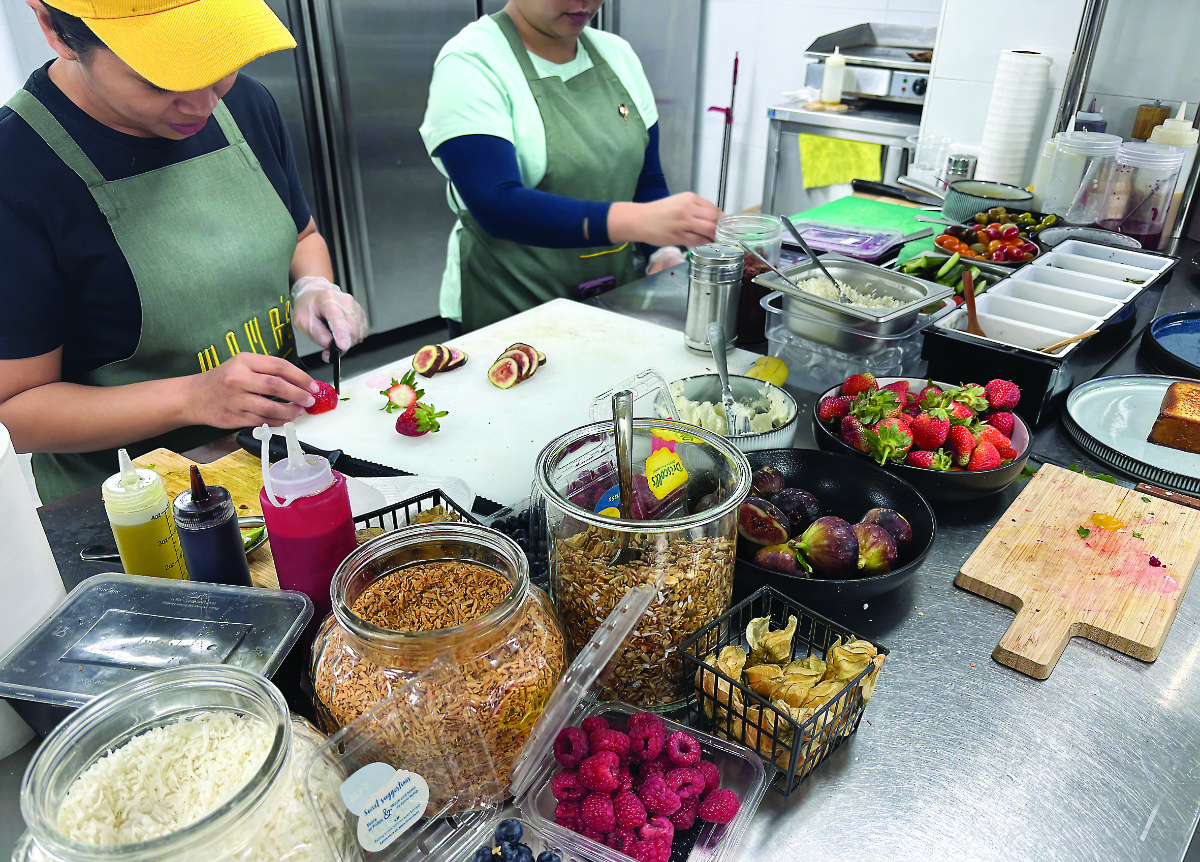
For many visitors Moma’s Garden is not just a restaurant but a place shaped by personal stories, dedication, and a deep appreciation for hospitality. (AN photo by Waad Hussain)
At the heart of Moma’s Garden is Intessar, the matriarch who personally oversees the menu and ingredient selection, ensuring that every dish meets her high standards.
She said: “Finding the right ingredients can be difficult. Every day I go out myself and handpick what we use. Maybe that’s why this place feels like home to so many people. Even the local vendors recognize me now and know I won’t settle for anything less than top quality.
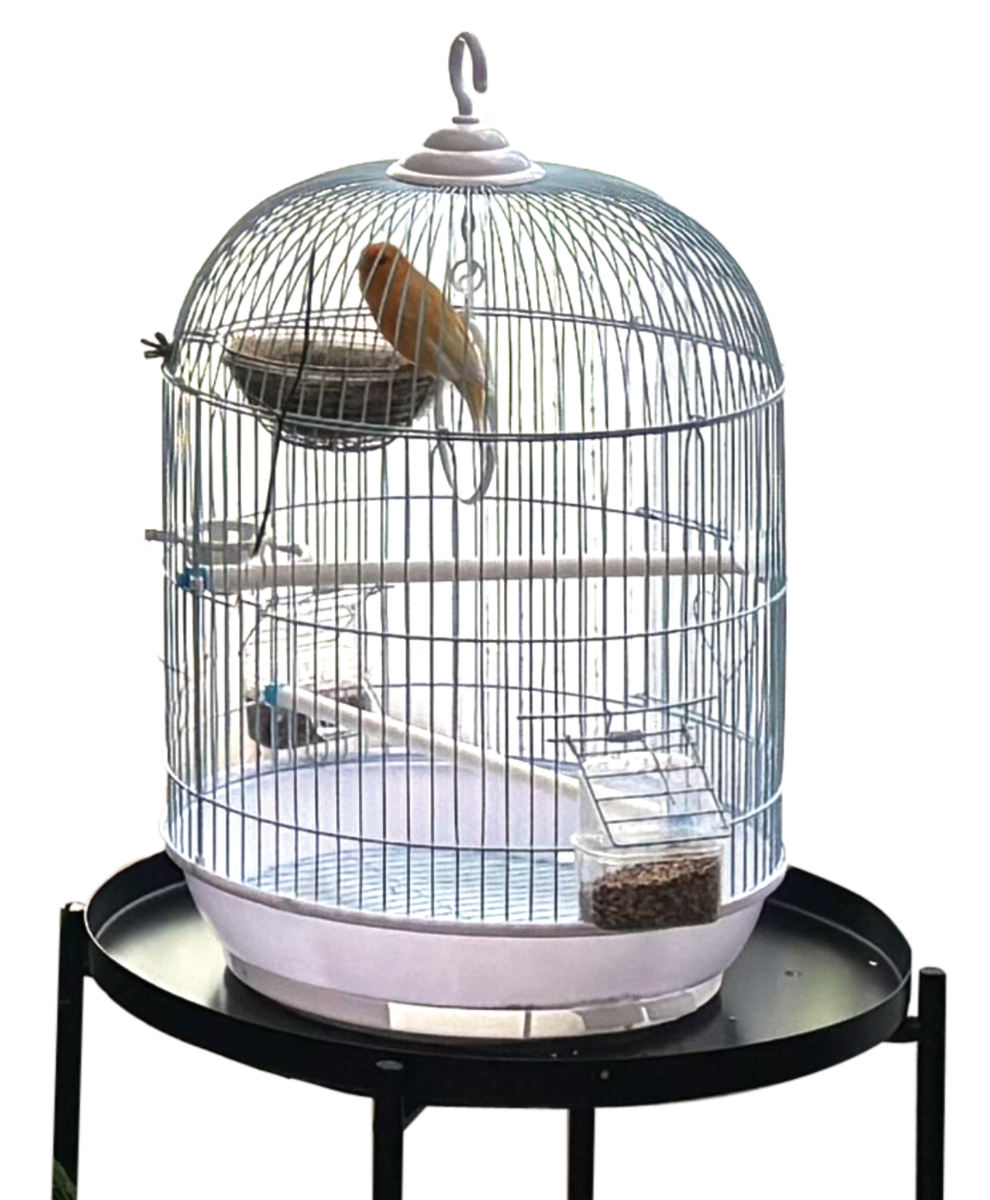
Moma's Garden isn't just a restaurant -- it's a place shaped by stories, dedication, and hospitality.
“Our dishes are not traditionally Arabic, but we’ve given them a modern twist infused with Arabic elements, like shakshuka and date toast.”
This hands-on approach and commitment to fresh ingredients help define Moma’s Garden’s philosophy.
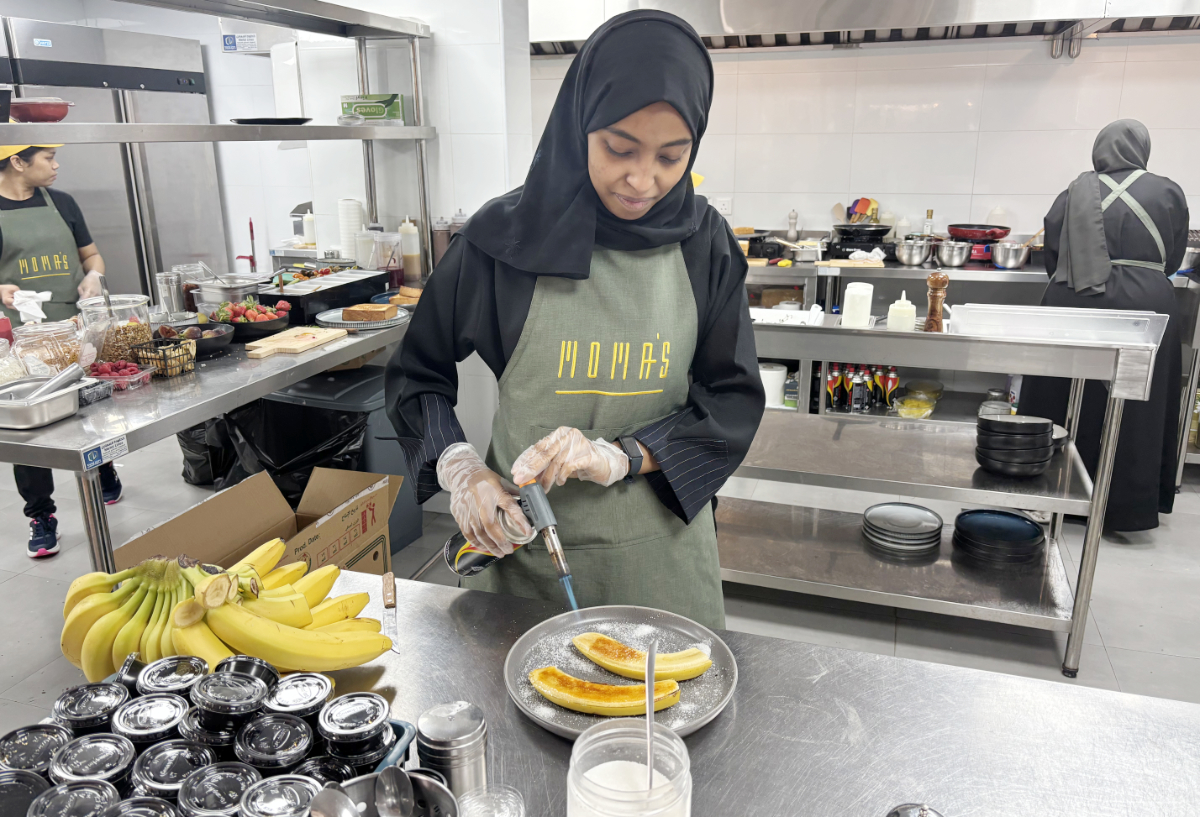
Every dish tells a story – Carefully crafted recipes with a modern twist. (AN photo by Waad Hussain)
The setting at Moma’s Garden is carefully designed to create a welcoming and relaxed environment. The wooden tables, soft pastel hues, and an abundance of plants contribute to an atmosphere that encourages guests to unwind and enjoy their meal.
A unique feature is the wishing tree, where visitors leave handwritten notes — a symbol of community and connection that has become an integral part of the restaurant’s charm.
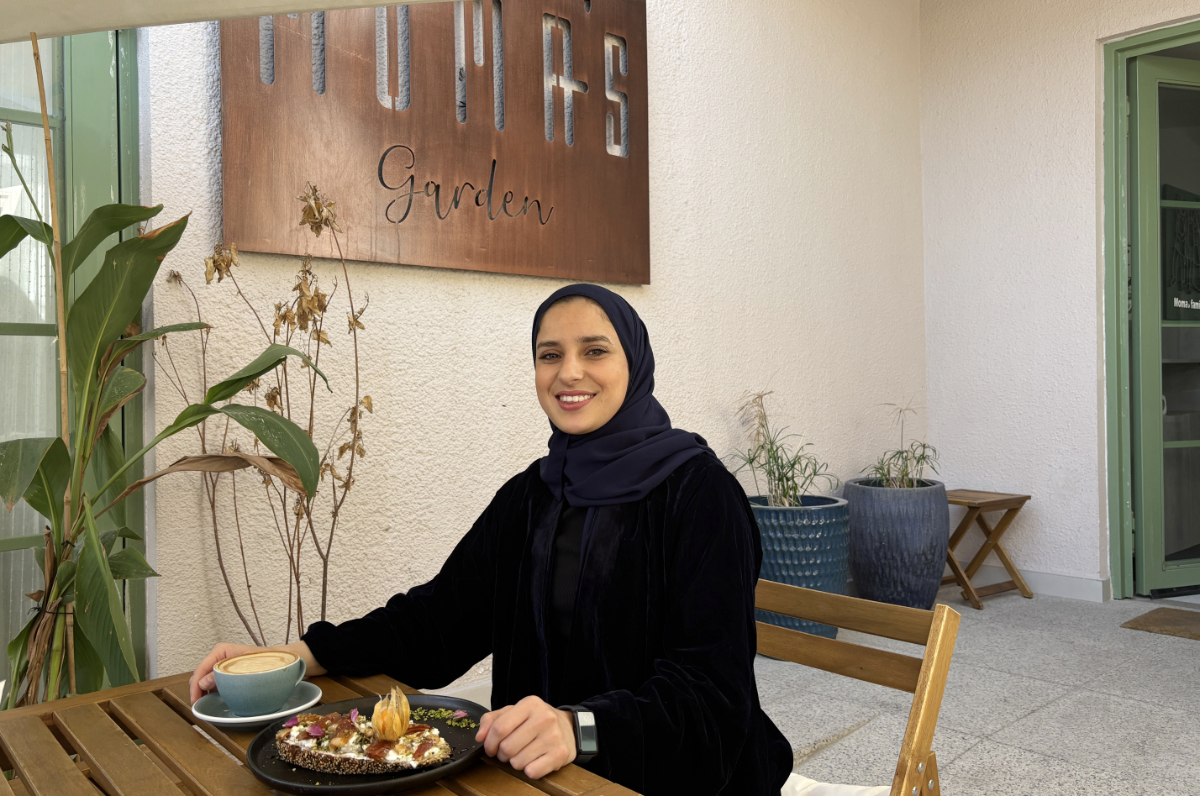
“I always come to Moma’s Garden” – Roa Khushina, a regular guest. (AN photo by Waad Hussain)
Al-Mumen said: “We select our ingredients as if we are choosing them for our own home, so that our guests feel like they are in their second home, not just any restaurant.
“We want them to feel like they are visiting us, like guests in our own house.”
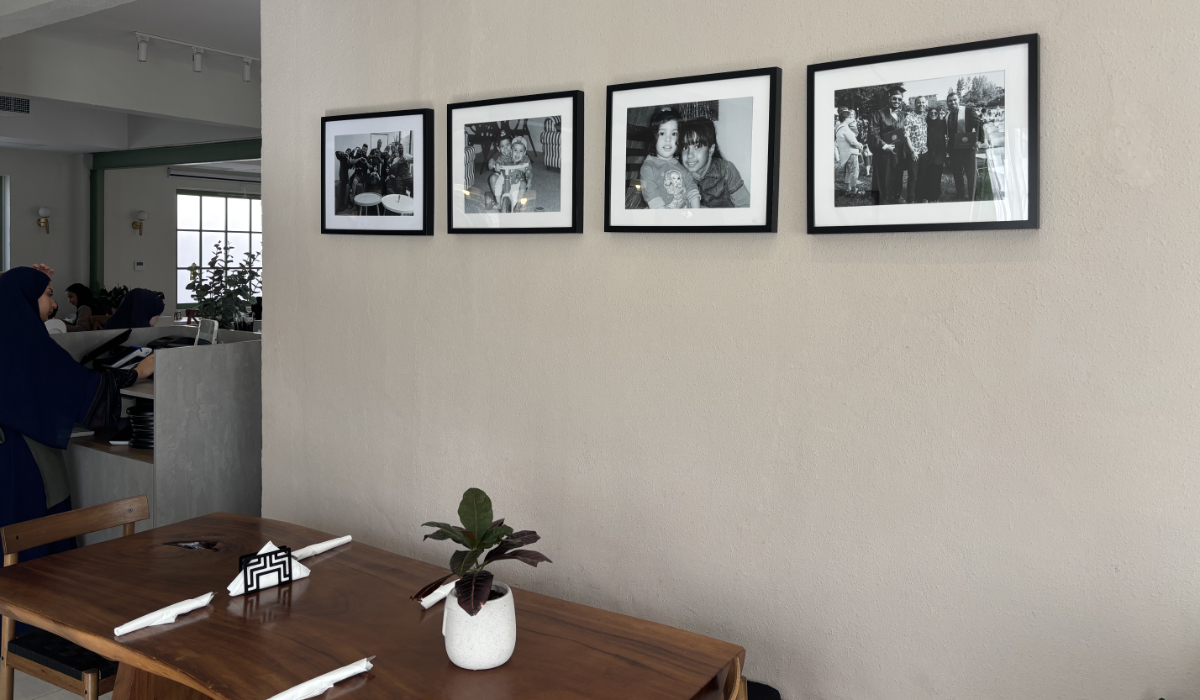
A family’s journey on the walls – Framed photographs tell the story of the Al-Mumen family. (AN photo by Waad Hussain)
For many customers, this sense of familiarity is what keeps them coming back.
Roa Khushina, a fitness trainer and regular at the establishment, said: “I always come to Moma’s Garden — it’s honestly one of the best restaurants in Alkhobar. Their dishes are excellent, diverse, and they even offer healthy options.”
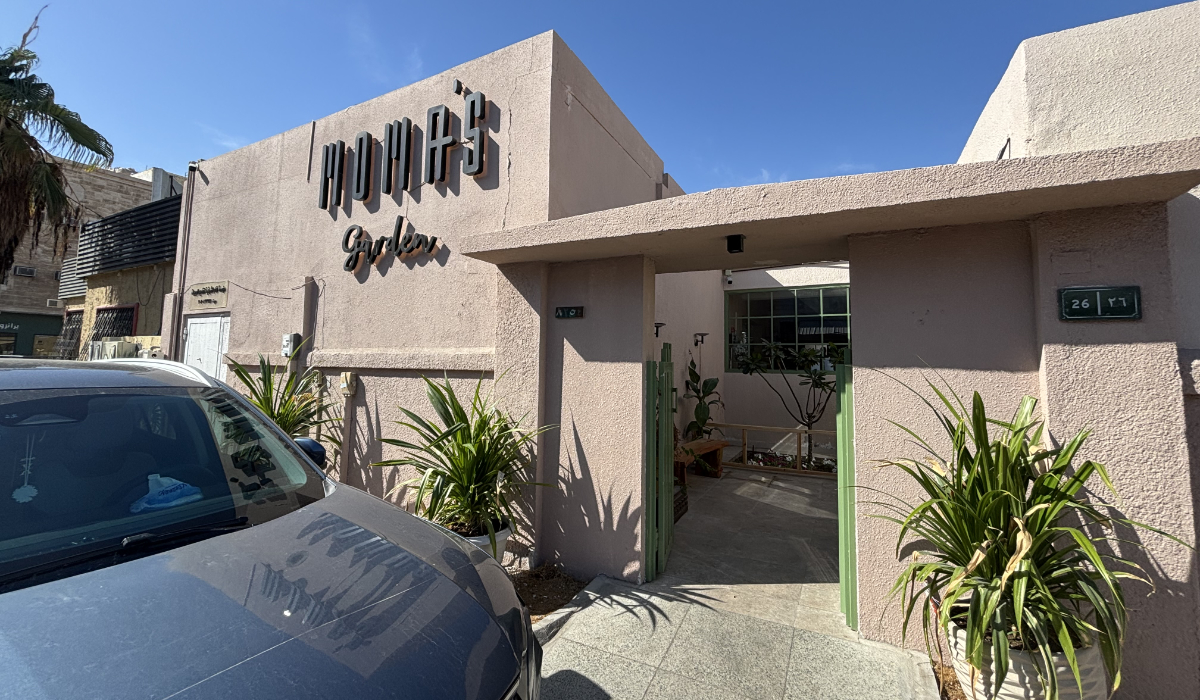
Moma’s Garden – AlKhubar, Saudi Arabia. (AN photo by Waad Hussain)
Running a restaurant as a family comes with its own challenges, particularly in hiring staff who align with the restaurant’s vision.
Hassan, the eldest son, said: “We don’t just look for employees — we look for people who fit our culture, who see this place as more than just a job. It takes us four to five months to find the right person.”
Despite occasional differences in opinion, the Al-Mumen family views these challenges as an essential part of working together and evolving the business.
“These challenges make our family stronger, and we see ourselves as partners in success,” he added.
With two established locations, the family remains committed to maintaining quality rather than expanding too quickly.
“We are not just running a business,” said Al-Mumen. “We are sharing our passion, our creativity, and our love for food. At the end of the day what matters most is that we continue to do what we love together.”
For many visitors Moma’s Garden is not just a restaurant but a place shaped by personal stories, dedication, and a deep appreciation for hospitality.




























